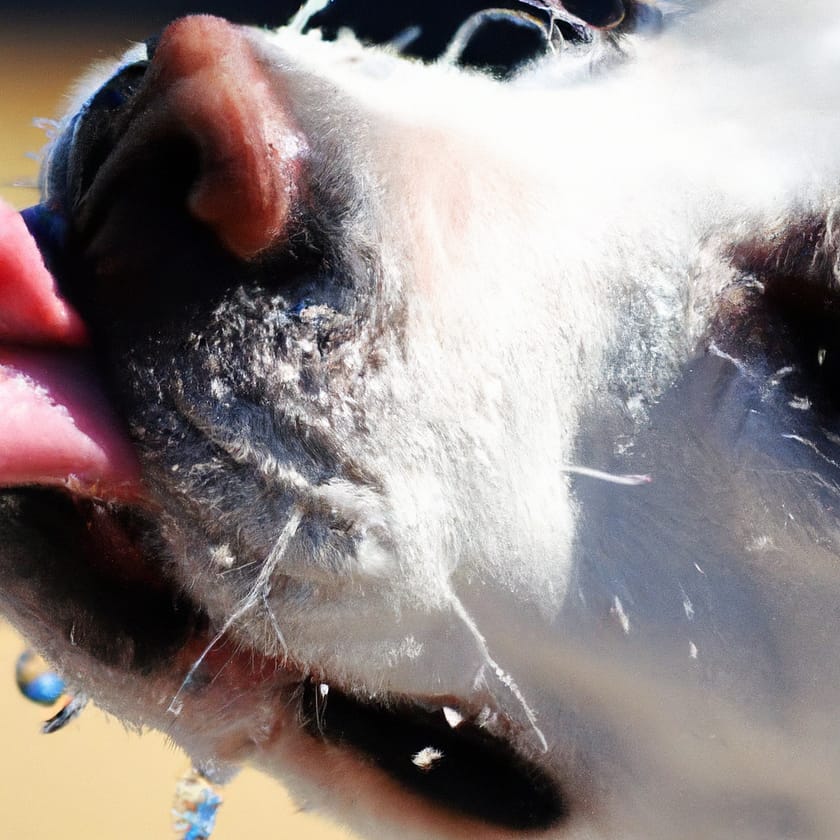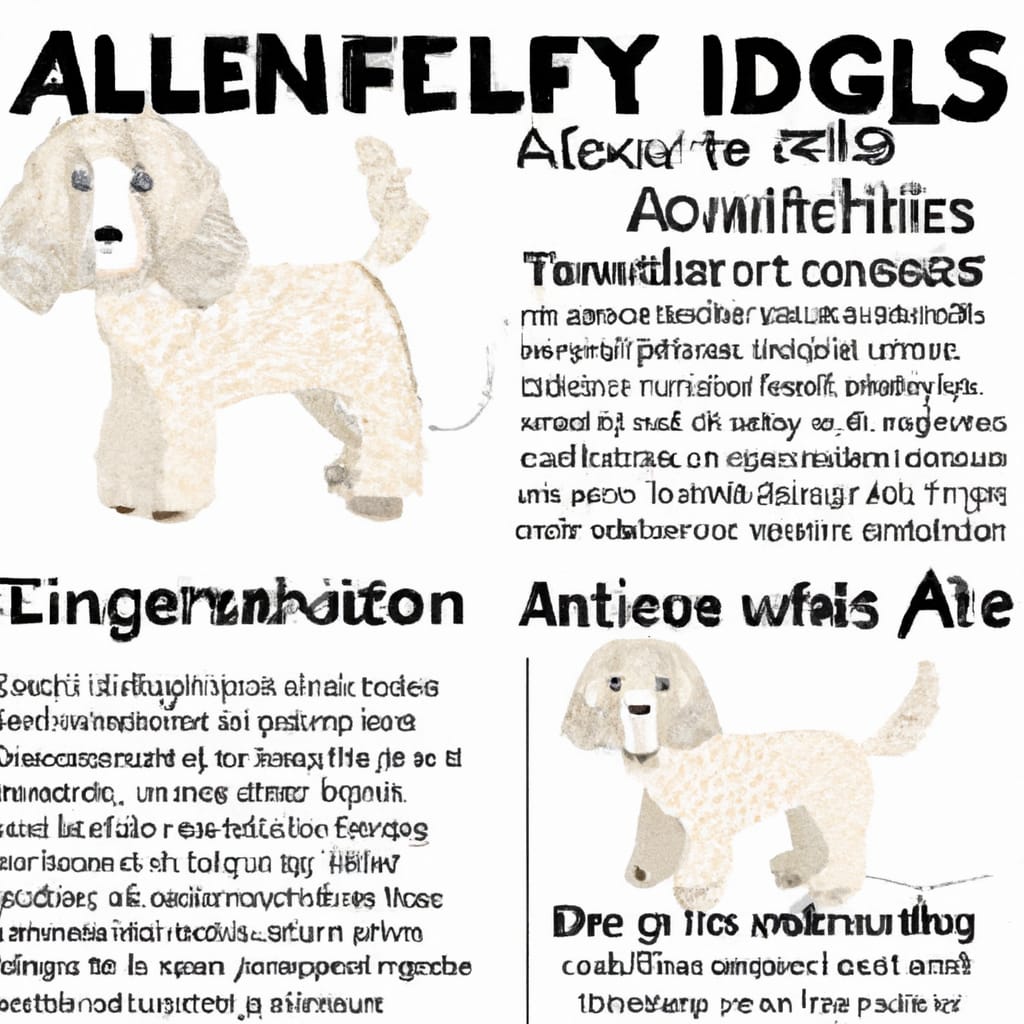Why Does My Dog Smell Like Fish? 5 Common Causes Behind The Stink
If you’ve ever wondered why your furry friend suddenly smells like a fish market, fear not! In this article, we’ll explore the puzzling question, “Why does my dog smell like fish?” By uncovering the five most common causes behind this stinky situation, you’ll gain a better understanding of what might be triggering that fishy odor. From skin infections to dietary issues, these causes will help you identify the root of the problem and find effective solutions to keep your dog smelling fresh and clean. So, let’s dive in and banish that fishy smell once and for all!
Bacterial Infection
Anal Gland Infection
If your dog has a fishy smell coming from their rear end, it could be a sign of an anal gland infection. Dogs have small scent glands on either side of their anus, and these glands can become infected and produce a foul odor. Anal gland infections typically occur when the glands become blocked, allowing bacteria to grow and cause an infection. This can be a result of poor nutrition, improper grooming, or an underlying medical condition. It is important to have your dog seen by a veterinarian if you suspect an anal gland infection, as they may need to be expressed or treated with antibiotics.
Skin Infection
Another potential cause for your dog smelling like fish is a skin infection. Bacterial skin infections can occur in dogs, especially in areas where there is excess moisture or damage to the skin. These infections can produce a strong odor, which may resemble the smell of fish. Common areas for skin infections include the ears, paws, and folds of skin. It is important to keep your dog’s skin clean and dry to prevent these infections. If your dog develops a skin infection, your veterinarian may prescribe antibiotics or topical treatments to help clear it up.
Yeast Infection
Malassezia Dermatitis
Yeast infections, specifically malassezia dermatitis, can also cause dogs to have a fishy odor. Malassezia is a type of yeast that naturally lives on the skin, but an overgrowth can occur, leading to an infection. Dogs with allergies, hormonal imbalances, or immune system deficiencies are more prone to developing malassezia dermatitis. Symptoms of this condition include itching, redness, and a distinct smell reminiscent of fish. Treatment typically involves antifungal medications, medicated shampoos, and addressing any underlying issues that may be contributing to the infection.

Poor Dental Hygiene
Gingivitis
If your dog’s breath smells fishy, it may be a sign of poor dental hygiene. Gingivitis, which is inflammation of the gums, can cause a foul odor to emanate from your dog’s mouth. Plaque and tartar buildup on the teeth can lead to bacteria growth, resulting in gingivitis. Regular dental care, including brushing your dog’s teeth and professional cleanings, can help prevent and treat gingivitis. In severe cases, your veterinarian may need to perform a dental procedure to clean and treat the affected teeth and gums.
Periodontal Disease
If left untreated, gingivitis can progress into periodontal disease, which is a more advanced form of gum disease. In addition to a fishy odor, dogs with periodontal disease may also have loose teeth, bleeding gums, and difficulty eating. The bacteria associated with periodontal disease can not only cause bad breath but can also spread to other organs, leading to potentially serious health issues. Treatment for periodontal disease often involves a combination of professional dental cleaning, antibiotics, and regular at-home dental care.
Fishy Diet
Fish-Based Dog Food
It may seem counterintuitive, but feeding your dog a fish-based diet can sometimes result in a fishy odor. While fish is a great source of omega-3 fatty acids and other nutrients, excessive consumption can cause a distinct odor in your dog’s skin and coat. This odor is caused by certain compounds in fish that are released through the dog’s skin. If you notice a strong fishy smell after switching your dog’s food to a fish-based diet, it may be worth considering trying a different protein source to see if the odor subsides.
Table Scraps
Feeding your dog table scraps, particularly fish-based scraps, can also contribute to a fishy smell. When dogs consume fish or fish products, such as leftover salmon or tuna, their bodies process the food and eliminate waste through sweat glands in the skin. This can result in a fishy odor emanating from your dog. It is important to avoid feeding your dog excessive amounts of table scraps, as it can lead to weight gain, digestive issues, and an unpleasant odor. Stick to a balanced and appropriate diet for your dog to ensure their overall health and minimize any odor issues.

Urine Scalding
Incontinence
If your dog has a fishy smell around their genital area, it may be due to urine scalding. Incontinence is the inability to control urination, and when urine comes into contact with the skin for extended periods, it can cause irritation and a foul odor. Incontinence can occur as a result of various factors, including aging, hormonal imbalances, urinary tract infections, or spinal cord injuries. It is essential to consult with your veterinarian to determine the underlying cause of your dog’s incontinence and develop a treatment plan to address the issue and alleviate the fishy odor.
Urinary Tract Infection
Another reason for your dog’s fishy odor could be a urinary tract infection (UTI). UTIs occur when bacteria enter and multiply in the urinary tract, causing inflammation and infection. Besides the fishy odor, other common symptoms of a UTI include frequent urination, blood in the urine, and discomfort while urinating. UTIs can be diagnosed through a urinalysis and treated with antibiotics prescribed by a veterinarian. It is crucial to address UTIs promptly to prevent complications and to resolve the fishy odor associated with the infection.
Environmental Factors
Stagnant Water
Exposure to stagnant water can lead to your dog smelling like fish. When dogs come into contact with stagnant water, such as ponds or puddles, bacteria and algae can cling to their fur, causing an unpleasant odor. It is essential to rinse and dry your dog thoroughly after they have been in stagnant water to remove any potential contaminants and prevent the fishy smell. Additionally, providing clean and fresh water for your dog to drink can help promote their overall health and prevent the occurrence of odor caused by stagnant water.
Mold or Mildew
If your dog’s living environment has mold or mildew growth, it can contribute to their fishy smell. Mold and mildew produce a distinct odor that can transfer onto your dog’s fur and skin. These environmental factors can be harmful not only to your dog’s smell but also to their health. It is important to identify and address any sources of mold or mildew in your dog’s environment, such as damp areas or water damage in your home. By keeping your dog’s living space clean and dry, you can help prevent the development of a fishy odor caused by mold or mildew.
Allergies
Food Allergy
If your dog has a fishy smell, it could be a result of a food allergy. Dogs, like humans, can develop allergies to certain foods, and this can manifest as an unpleasant odor. Common food allergens for dogs include fish, chicken, beef, wheat, and dairy products. In addition to the fishy smell, food allergies can cause symptoms such as itching, skin redness, gastrointestinal upset, and ear infections. If you suspect your dog has a food allergy, your veterinarian can perform allergy testing and recommend an appropriate diet or elimination trial to identify and manage the allergen.
Contact Allergy
Another type of allergy that can cause a fishy smell is a contact allergy. Dogs can be sensitive to various substances they come into contact with, including cleaning products, certain fabrics, or grooming products. If your dog develops an allergic reaction to something they have touched or been exposed to, it can result in skin irritation and an unpleasant odor. Identifying and eliminating the allergen from your dog’s environment can help alleviate the symptoms and prevent the fishy smell. Consult with your veterinarian for guidance on how to manage contact allergies in your dog.
Lack of Proper Grooming
Infrequent Bathing
If your dog is not bathed regularly, it can contribute to a fishy odor. Proper grooming, including regular baths, helps remove dirt, excess oil, and odor-causing bacteria from your dog’s skin and coat. Failure to bathe your dog regularly can allow these substances to accumulate, resulting in an unpleasant smell. The frequency of bathing will depend on your dog’s breed, activity level, and coat type. Consult with your veterinarian or a professional groomer for guidance on how often to bathe your dog and to ensure you are using appropriate grooming products.
Not Cleaning Ears
Neglecting to clean your dog’s ears can also lead to a fishy odor. Dogs with floppy or hairy ears are particularly prone to ear infections, which can cause a foul smell. Ear infections commonly occur as a result of excessive moisture, ear mites, allergies, or the buildup of wax and debris. Regularly checking and cleaning your dog’s ears will help prevent infections and the accompanying odor. Use a veterinarian-approved ear cleaning solution and follow proper techniques to clean your dog’s ears without causing any harm. If you suspect an ear infection, consult your veterinarian for appropriate treatment.
Hormonal Imbalance
Hyperthyroidism
One potential cause for your dog’s fishy smell could be a hormonal imbalance, such as hyperthyroidism. Hyperthyroidism occurs when the thyroid gland produces an excessive amount of thyroid hormone. This condition can result in a variation of symptoms, including changes in body odor. While a fishy smell is not a common symptom of hyperthyroidism in dogs, it is important to mention it as it can occur in rare cases. If you suspect your dog may have a hormonal imbalance, consult with your veterinarian, who can perform blood tests to diagnose and guide treatment options.
Cushing’s Disease
Cushing’s disease, also known as hyperadrenocorticism, is another hormonal disorder that can cause a fishy odor. This condition occurs when the body produces excess cortisol, a stress hormone. Frequently associated symptoms of Cushing’s disease include increased thirst, increased appetite, hair loss, and muscle weakness. In some cases, dogs with Cushing’s disease may develop a unique body odor, resembling a fishy smell. If you suspect your dog may have Cushing’s disease, it is important to consult with a veterinarian for accurate diagnosis and treatment options.
Internal Medical Conditions
Kidney Disease
Dogs with kidney disease can sometimes exhibit a fishy odor. The kidneys are responsible for filtering waste products from the blood and eliminating them through urine. When the kidneys are not functioning properly, waste products can build up in the body, resulting in an unusual odor. In addition to the fishy smell, other signs of kidney disease may include increased thirst, increased urination, weight loss, and lethargy. If you suspect your dog may have kidney disease, prompt veterinary intervention is crucial for diagnosis and to explore treatment options.
Liver Disease
Liver disease can also lead to a fishy odor in dogs. The liver plays a vital role in metabolizing and detoxifying substances within the body. When the liver is compromised due to disease or dysfunction, it can impact the body’s ability to eliminate waste effectively. This can result in the buildup of ammonia and other chemicals that may contribute to a fishy smell. Other signs of liver disease in dogs include yellowing of the eyes or skin (jaundice), decreased appetite, vomiting, and an increased tendency to bleed. If you suspect your dog may have liver disease, it is essential to seek veterinary care for proper diagnosis and treatment.
In conclusion, there are several potential reasons why your dog may smell like fish. Bacterial infections, yeast infections, poor dental hygiene, fishy diet, urine scalding, environmental factors, allergies, lack of proper grooming, hormonal imbalances, and internal medical conditions can all contribute to this distinctive odor. Understanding these common causes can help you identify the issue and seek appropriate veterinary care if needed. Remember, a healthy and pleasant-smelling dog is a happy dog!













